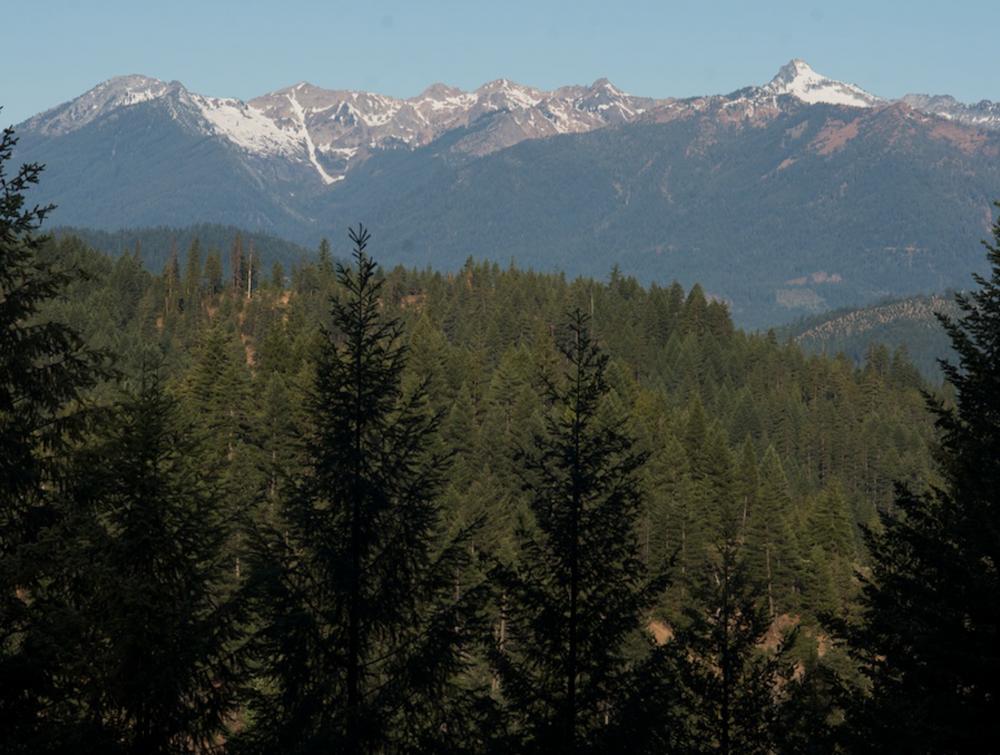Colorado Senators will help decide fate of mis-guided forestry legislation

The Shasta-Trinity National Forest, the largest in California, includes five wilderness areas.
Jason Smith
Fix Our Forests Act could add compounding crises at the Forest Service as Trump administration works to deconstruct agency
Coloradans understand firsthand the devastating threat of uncontrollable wildfires, having endured extreme drought and drier seasons that fueled megafires like Cameron Peak and East Troublesome. They also oppose reckless industry giveaways that jeopardize the health of their cherished public lands and the forests that support world-class recreation, clean air and water, and local economies.
Coloradans deserve smart, science-driven solutions that truly protect their forests and communities. Unfortunately, the U.S. House of Representatives just passed the antithesis to this: the “Fix Our Forests Act”
Right now, Colorado stakeholders (included CSU’s Colorado Forest Restoration Institute, members of the Front Range Collaborative, the Northern Colorado Fireshed Collaborative and other similar watershed groups, along with scientists, and federal, state, and private land managers) are collaboratively working to find and implement meaningful solutions and restore fire to Colorado’s forests in a socially and ecologically appropriate way.
At the same time, lawmakers in Washington, DC are understandably eager to solve the wildfire crisis. The problem is that many are looking for easy fixes that won’t actually solve the problem.
Some of these bad ideas are core to the “Fix Our Forests Act” which could soon face a vote on the Senate floor. Some of the problematic provisions in the bill include:
- Cutting out the public when the Forest Service embarks on logging projects that are up to 15 square miles across our public forests;
- No longer requiring that these large-scale projects adequately consider science;
- Interfering with the power of federal courts by limiting the rights of the public to seek justice through the judicial system when the government breaks the law.
Especially at a time when the Forest Service is already facing the recent and devastating mass firings of agency employees, the last thing our public forests need is less capacity to implement reforestation, wildfire mitigation and other projects that directly address climate change.
What’s more, Senator Hickenlooper is considering introducing a Senate version of the bill, after recently advancing a smart, bipartisan solution to protect Colorado’s forests and communities with the Wildfire Intelligence Collaboration and Coordination Act. The bill would enhance coordination and science-based strategies to improve wildfire mitigation. Turning to the Fix Our Forests Act would be a major step backward, undermining his commitment to science-driven solutions that safeguard Colorado residents from the worst effects of a changing climate.
Lawmakers should learn from the work that’s happening across Colorado, including in the Front Range. They also must stand up and continue to oppose actions that dismantle the Forest Service’s ability to ensure our nation’s forests remain places that benefit communities, climate, and biodiversity, and continue to be sources for clean air and water. Lawmakers should also follow the advice of experts from across the country, which they laid out in detail in the Wildfire Commission report which is focused on mitigating and managing wildfire.
The Wilderness Society can be a resource to you in your reporting on Fix Our Forests Act. To connect with our scientists and policy experts, contact Emily Denny at edenny@tws.org
